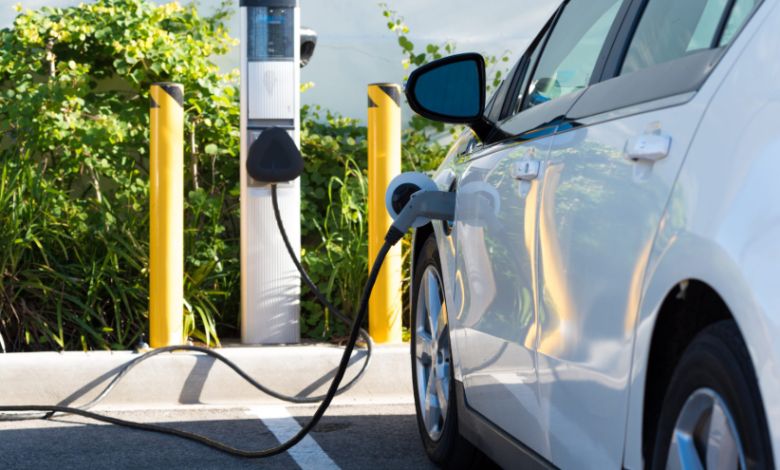Driving Change With The Electric Car

Introduction To Electric Vehicles
The electric car is reshaping how people think about transportation in the modern world. Unlike conventional cars that rely on fossil fuels, electric vehicles are powered by electricity stored in rechargeable batteries. This change is not just about new technology—it’s about environmental responsibility, energy efficiency, and long-term economic savings.
How An Electric Car Functions
An electric car uses an electric motor instead of an internal combustion engine. It receives power from a battery pack, which can be recharged using various types of chargers. The motor converts electric energy into mechanical energy to move the car. The system is quiet, efficient, and has fewer moving parts than traditional vehicles, making it easier and cheaper to maintain.
When the accelerator is pressed, electricity flows from the battery to the motor. Regenerative braking systems help recharge the battery when the car slows down, enhancing overall efficiency.
Advantages Of Driving An Electric Car
One of the major benefits of driving an electric car is its contribution to reducing air pollution. These vehicles produce no tailpipe emissions, which means cleaner air in urban environments. Cities that experience heavy traffic congestion can see a significant improvement in air quality through widespread electric car adoption.
From an economic standpoint, electric vehicles are more cost-effective over time. They do not require fuel, which reduces operational costs. Regular maintenance tasks such as oil changes, spark plug replacements, or emission checks are unnecessary.
Another major advantage is the quiet driving experience. Without a noisy combustion engine, the electric car provides a smooth and peaceful ride, which contributes to reduced noise pollution as well.
Common Challenges Faced
Despite the benefits, there are several obstacles that slow down the transition to electric vehicles. One of the main issues is the limited charging infrastructure in certain regions. Although urban areas are seeing more charging stations, rural zones still struggle with accessibility.
Battery technology is another point of concern. While modern electric cars can travel significant distances on a single charge, many consumers still worry about running out of power. Charging time is another drawback; even fast chargers require around 30 to 60 minutes to deliver a substantial charge.
Initial costs also pose a challenge. Although electric car the running costs are low, the upfront price of an electric car is often higher than that of a petrol or diesel car. However, falling battery prices and government incentives are helping to close this gap.
Support From Governments And Industry
Governments around the world are pushing for electric mobility through various initiatives. These include subsidies, tax credits, and investments in public charging infrastructure. In many countries, purchasing an electric car comes with incentives that lower the overall cost.
Manufacturers are also responding to the growing demand. Leading automotive brands are committing to electrification by expanding their electric car lineups. Some have even announced plans to stop producing fossil-fuel cars in the next decade.
Environmental Impact And Sustainability
The electric car offers an environmentally friendly alternative to traditional vehicles. When powered by renewable energy sources, it becomes a truly green option. Charging electric cars using solar or wind energy means almost no carbon emissions from transportation.
However, the environmental impact of electric vehicles also depends on how batteries are produced and disposed of. Mining for battery materials like lithium, cobalt, and nickel can have negative effects. Recycling and reuse programs are being developed to reduce this environmental cost and promote sustainability.
See also: Leading the Way: Fasteners Manufacturers in China
The Role Of Renewable Energy
Combining electric cars with renewable energy systems such as solar panels can maximize the environmental benefits. Homeowners with solar-powered systems can generate electricity and store it for car charging. This not only reduces grid dependency but also makes transportation nearly emissions-free.
In some regions, vehicle-to-grid (V2G) technology allows the electric car to feed energy back to the grid during peak hours. This creates a more flexible and efficient energy system, benefiting both car owners and utility providers.
Recent Technological Innovations
Technology continues to evolve rapidly in the electric vehicle space. Battery advancements are pushing the limits of range and charging speed. New solid-state batteries promise greater capacity, improved safety, and faster charging times.
Connectivity is another key area. Electric vehicles are now equipped with smart features such as remote diagnostics, smartphone integration, and real-time navigation that guides drivers to the nearest charging station.
Some electric vehicles are also coming equipped with autonomous driving features, enhancing both safety and convenience. As more innovations are introduced, the driving experience continues to improve.
The Changing Consumer Mindset
Consumer interest in sustainable living is contributing to the rise in electric car adoption. People are more aware of their carbon footprint and are looking for eco-conscious alternatives. Electric cars are not only practical but also seen as a statement of modern lifestyle and responsibility.
The variety of models available is also growing. From compact city cars to luxury sedans and SUVs, manufacturers are catering to a broad range of consumers. This diversification is making electric mobility more accessible than ever before.
Future Outlook Of Electric Cars
The future of the electric car looks bright. Most industry experts agree that electric vehicles will become dominant in global markets within the next two decades. Advances in technology, falling battery prices, and increased government support are accelerating the transition.
Automakers are planning to invest billions in research and production of electric cars. Charging networks are expanding, and energy companies are exploring new ways to integrate renewable sources into the electric vehicle ecosystem.
In time, it is expected that owning and driving an electric car will become the norm rather than the exception. The shift not only benefits individual drivers but also contributes to a global effort to combat climate change and build a sustainable future.
Conclusion
The electric car is no longer just a futuristic concept; it is a real, impactful solution to the challenges of modern transportation. With benefits that include environmental sustainability, lower operational costs, and improved technology, it offers a smart alternative to traditional vehicles.
As adoption continues to grow, the electric car is set to transform the way the world moves—one charge at a time.





